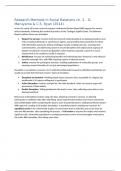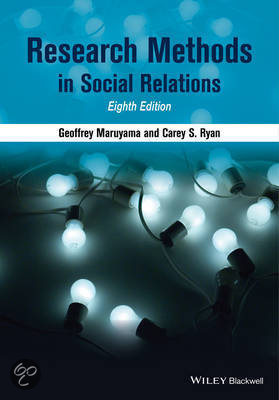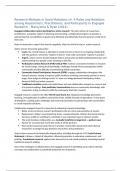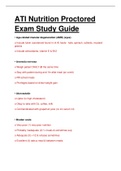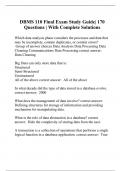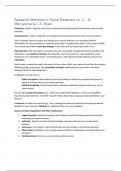Summary
Summary of literature, lecture 3: UvA research methodology
- Course
- Institution
- Book
Summary of the literature we need to read before lecture 3 of Research Methodology. Research Methods in Social Relations H3 — G. Maruyama & C.S. Ryan; Experimental and Quasi-Experimental Designs for Generalized Causal Inference. — W.R. Shadish, T.D. Cook & D.T. Campbell.
[Show more]
